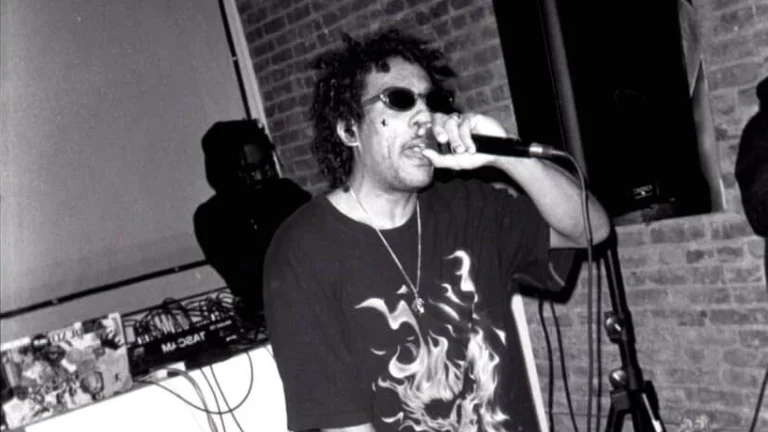In The Cry of Jazz, the pioneering music documentary, Alex, the narrator and main black male character brings up a concept called “the jazz body” and “the jazz spirit.” His explanation goes like this: a genre as wild, free and expressive in nature as jazz can only die once the genre starts to get repetitive, and ideas about what jazz is supposed to sound like get more conservative with time. To him, jazz may die due to repetition and imposed structure, but what remains is the spirit. The “jazz spirit” is the spirit of doing whatever you want musically and taking music to waters as expressively avant-garde as possible. No two artists understand this better than McKinley Dixon and Kassa Overall. This isn’t to suggest that these two had planned to reinvent any wheels with their albums, but each of them make a case for hip hop just being considered an extension of jazz.
Another thing Alex brought up is that jazz was born out of black struggle and the hunger to constantly create in spite of it. Struggle is a common theme that runs through both of these artists’ catalogues, be it Kassa’s tackling of mental and emotional struggles or Dixon struggling to survive with his life intact in a space where black people have to go through hell to survive. Dixon and Kassa both flow on their albums as if hip hop was not just borne from the lineage of poetry, but that kind of poetry was always a part of the jazz tradition. This may explain Dixon’s own past frustration at being tossed into the hip hop cubbyhole. He is just the poet laureate of the hour. In fact, Beloved! Paradise! Jazz!? and Kassa’s Animals are albums that make calling them “jazz hop,” a genre that contains artists such as Guru and A Tribe Called Quest, feel like an insult.
Let’s talk Dixon first. Beloved! Paradise! Jazz!? is an album-long tribute to the late Toni Morrison (the albums are named after Toni’s Beloved Trilogy novels, and the opening Toni passage on “Hanif Reads Toni” is the album’s motif), taking an exploration of life in the hood using a largely spiritual jazz background. Similar to the setting of the last three albums, McKinley waxes poetic about the stress of dodging policemen, dead homies, and the need to maintain a sense of safety and sanity through it all. “I’m doing this, so I don’t blow my shit all over that balcony,” warns Dixon, opening the horn-heavy tribute to a friend called “Tyler, Forever.”
But while Dixon claims his music is “murder music for people who ain’t been murdered yet,”, he never lets you lose that sense of hope. From “The Story so Far” into the closing title track, Dixon finds himself nearly out of the proverbial woods with his soul intact.
Beloved! Paradise! Jazz!? tackles environmental and emotional discomforts with a musical grace, but Animals isn’t so at-arms-length about the pain. The album taps directly into Kassa’s anxieties, from how he gets his money up (“Ready to Ball”) to ridding stress from music to relationship issues without bothering Ma Dukes on the way (“Found My Way Back Home”). It has a naked emotional turbulence that may hidden or dressed up on Dixon’s BPJ. From the spacey textures of “Maybe We Can Stay” and the lovestruck closer “Going Up” to the dissonant “Still Can’t Find Me,” Animals is an emotionally visceral look into the mirror at himself and all that has transpired since we last heard from him.
Both albums demonstrate a diversity of sounds and colors, and both albums find Dixon and Kassa flowing to music they feel the most at home on, and both lack the fear in looking deeply at their own personal struggles over the musical backdrops. For it, both albums demonstrate that even if the jazz body may be ailing, the jazz spirit remains through artists like them.





